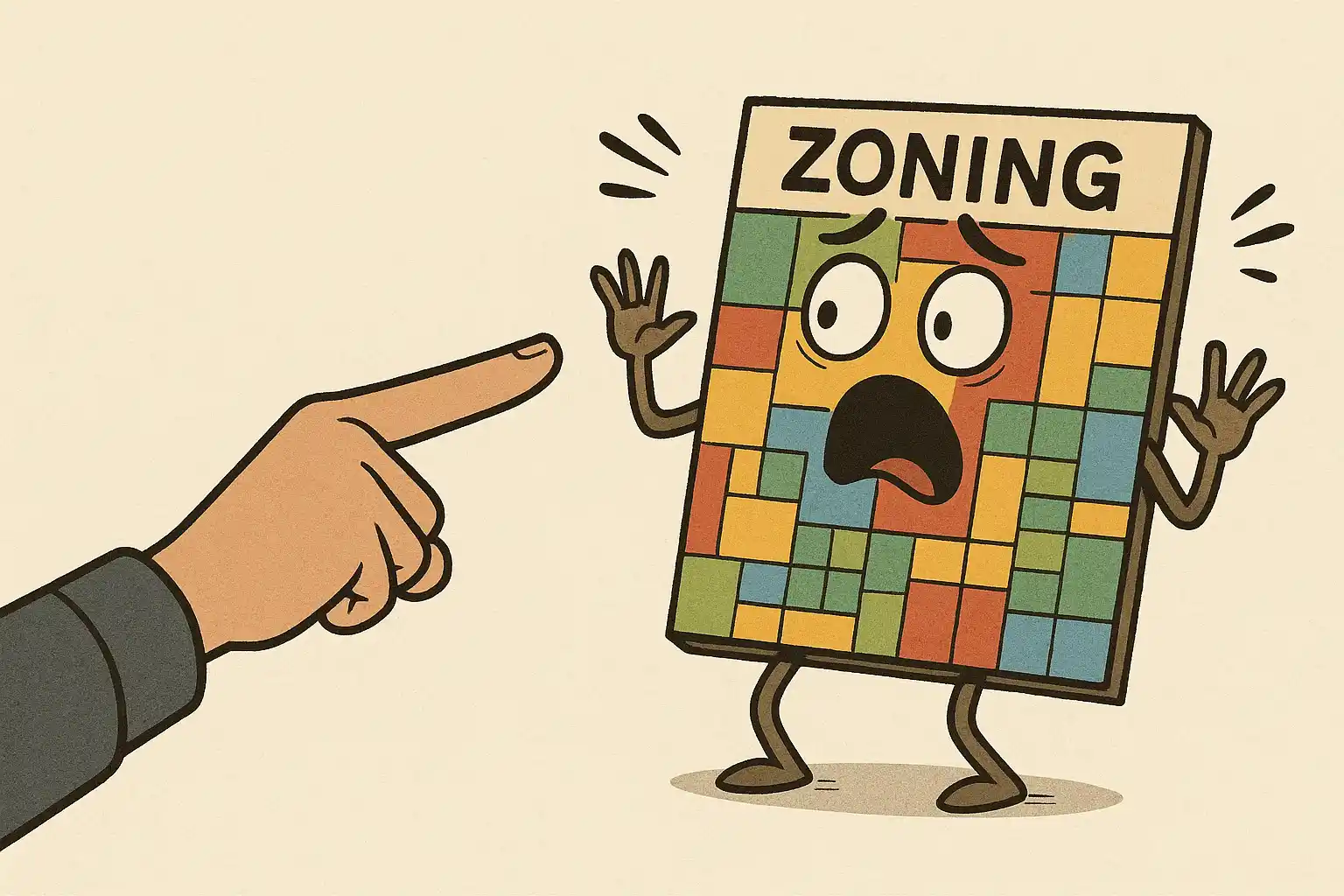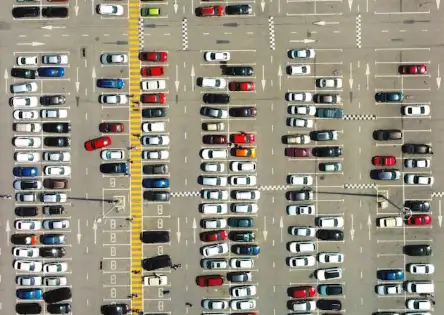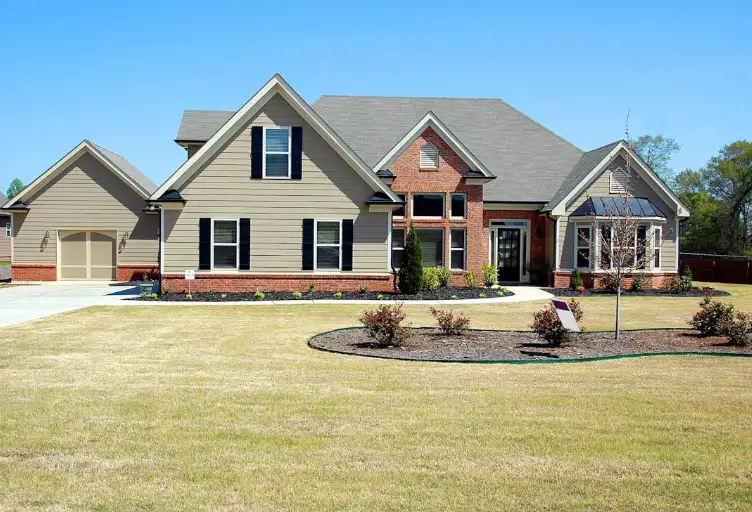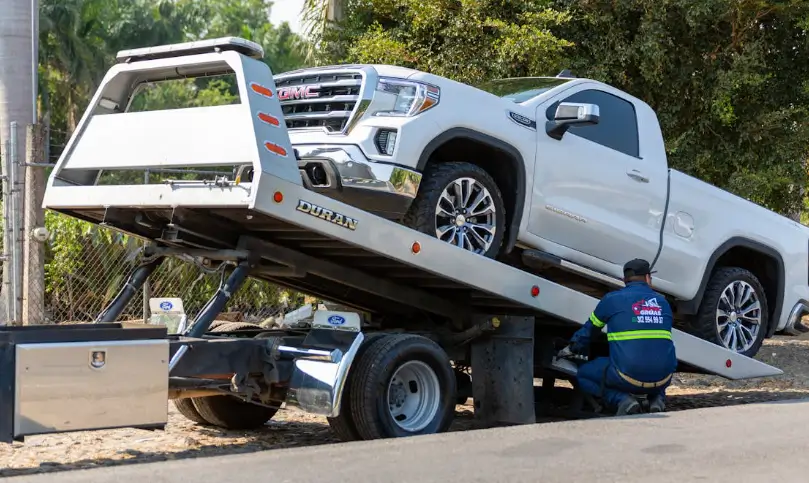What Is Spot Zoning (And Why Is It So Controversial?)
If you have been faithfully reading my blogs or if you are a seasoned planner, you are probably well acquainted with what zoning is. (if you need a refresher, check out Is Zoning 101: Why Can't You Just Build a Coffee Shop in Your Neighborhood).
But what about SPOT zoning.
What in the world is SPOT zoning.
It sounds relatively harmless, like something you might find on a planning vocabulary quiz or buried in the fine print of a zoning manual. But say it out loud at a public meeting and suddenly you're in a live episode of Zoning Court: Neighborhood Edition. People tense up, arms cross, eyebrows lift. You might even hear someone whisper, "Here we go again." And just like that, what started as a dry planning term turns into the neighborhood’s next drama.
Who is the system really working for?
Okay. So What IS Spot Zoning?
At its core, spot zoning is when one small piece of land gets special treatment. A parcel or two is rezoned differently than everything around it, usually to benefit a specific property owner, not the public as a whole.
For example, think of a quiet residential block… then suddenly, BOOM, a gas station on the empty corner lot. Or a 6-story apartment squeezed between single-family homes.
That’s spot zoning. And it raises eyebrows for a reason.
Why Does It Happen?
Sometimes it’s harmless. You're presented with a parcel that is empty or outdated. A project comes in that could serve a real community need by developing that parcel. Maybe it adds housing. Maybe it brings jobs. On paper, it’s a win.
But other times? Not so much. A developer may want a quick win or maybe a politically connected property owner pushes for a rezoning. But that's it, there’s no broader plan, no community input, just a sudden zoning shift and everyone else is left wondering what just happened.
Here’s What Planners Look For: Planners evaluating a potential zoning change ask a few key questions before moving forward. First, does the proposal align with the comprehensive plan or future land use vision? If not, it could signal that the request is out of sync with broader goals. Second, was the public genuinely involved in the process, or were they simply informed after decisions were made? Community engagement matters. Third, will this decision set a tone (what we call precedent) that’s reasonable and defensible for future projects? And finally, is there a clear, measurable public benefit, something more than just helping one property owner cash in? If the answer is yes across the board, the change might be on solid ground. If not, it raises red flags.
Why People Don’t Trust It
Spot zoning feels unfair. Like the rules changed for one person but not for the rest of us. It makes people feel like decisions happen behind closed doors. And sometimes... they do.
It also opens cities up to legal challenges. Courts tend to frown on zoning changes that look arbitrary or overly favorable to a private interest.
But even when it’s legal, it can still cause damage:
- People lose trust in the process
- Future projects face more resistance
- Neighborhoods feel blindsided
Is Spot Zoning Always Bad?
Not necessarily (but often, it is). Context is everything. A rezoning for affordable housing next to a transit stop might look like spot zoning, but if it follows the comp plan, has community support, and solves a real need? That’s just good planning.
How to Do It Right (or Avoid It Altogether)
If you absolutely must rezone a single parcel you’ve got to get it right. You really want to avoid any appearance of spot zoning. That means tying every decision to the big picture: the comprehensive plan, your housing strategy, your transit goals. Don’t just make the change because someone asked nicely or the lot looks empty.
It also means bringing the community in early. Not after everything’s been drafted. Not after the hearings are scheduled. Like early, when feedback can still shape the outcome. People want to feel included, not informed after the fact...(getting strong Arnstein vibes here).
And please, show your math. Don’t just say it’s a good idea. Explain why. What’s the public benefit? Who gains, and how?
Most importantly, avoid one-off fixes whenever you can. If something needs to change, ask yourself if there's a bigger pattern. Consider area-wide updates instead of carving out special exceptions one lot at a time. Remember that planning is systems oriented, not patch jobs.
Final Thoughts
Spot zoning may appear to be a simple zoning tweak, but it's more than that. It’s a trust issue.
If the public sees zoning as a game that only benefits the well-connected, it doesn’t matter how good the policy is. People won’t buy in.
So if you’re going to rezone a single parcel, do it with intention, transparency, and a clear answer to the question: who is this really for?
Because in planning, the why matters just as much as the what.
Want more zoning info? Check out Zoning Terms Every Homeowner Should Know
%20(1200%20x%20237%20px)%20(300%20x%2059%20px).webp)





